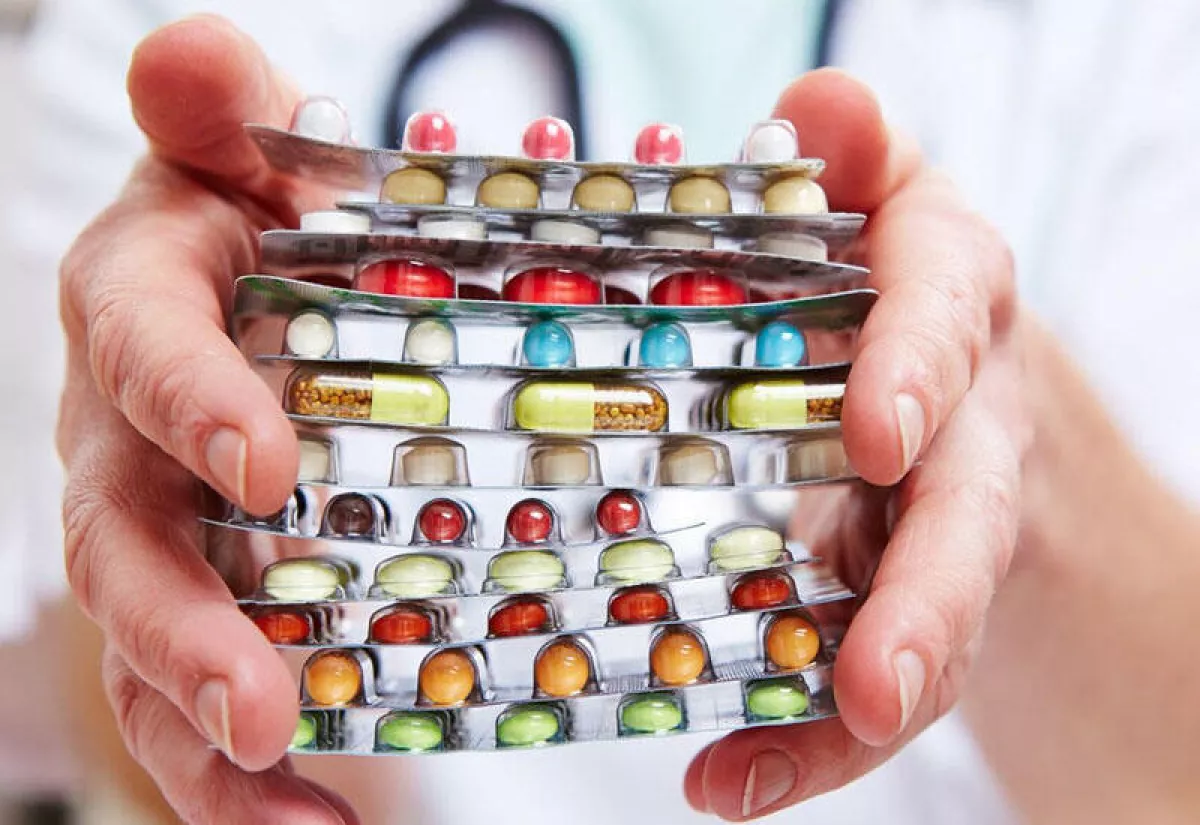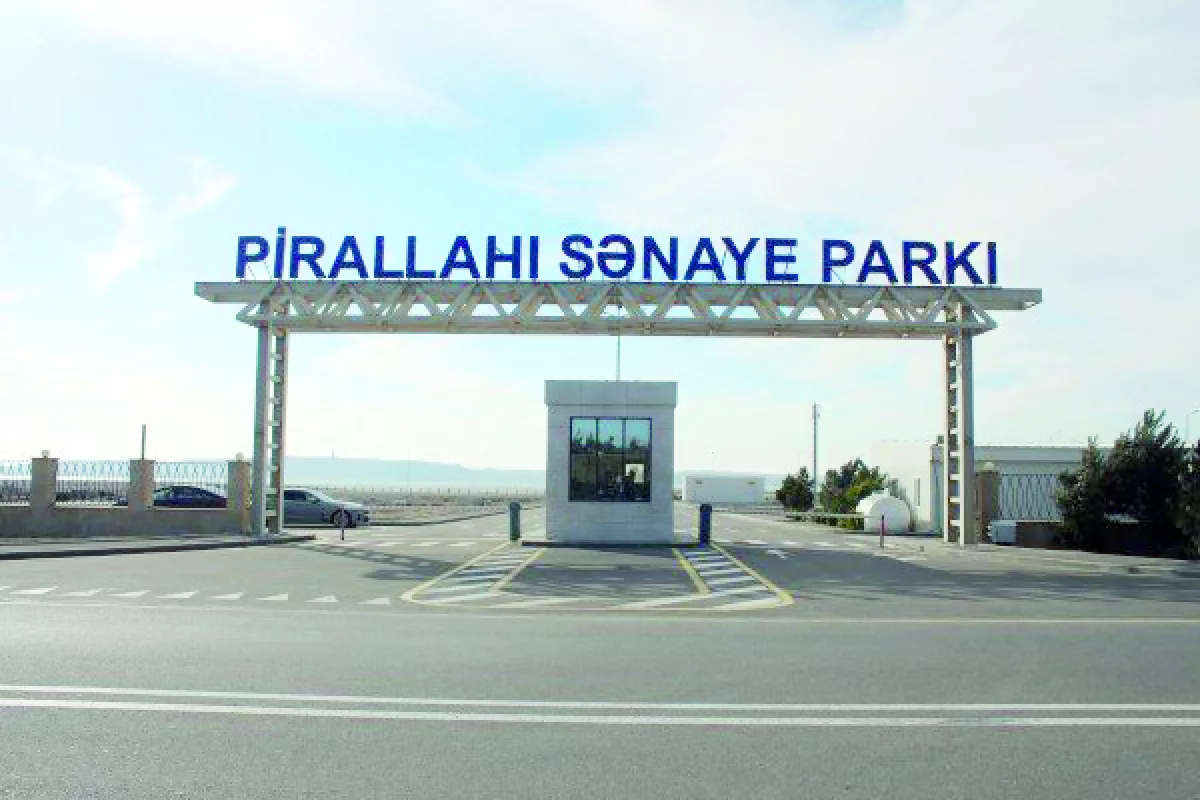Azerbaijan accelerates pharmaceutical industry growth Betting Big on local production
The post-pandemic surge in imported inflation has led to a global increase in drug prices, with these processes being particularly felt in developing countries that lack a developed domestic pharmaceutical industry. In order to reduce dependence on imported medicines, Azerbaijan has set the goal of accelerating the localisation of pharmaceutical production.
Plans to expand the Pirallahi Industrial Park, the creation of new pharmaceutical enterprises, the development of the "Pharmaceutical Education Development Concept," and participation in international projects for training industry specialists were discussed during the first international forum "Pharmaceutical Industry of Azerbaijan: Yesterday, Today, and Tomorrow," which was held in Baku on May 5.
In the post-Soviet period, attempts to localise pharmaceutical production in the country faced a number of subjective factors. Nevertheless, the need to accelerate this complex task was driven by the negative events of recent years: the manat devaluation in 2015, the COVID-19 pandemic, which led to a global shortage of several medicines, and the unprecedented high imported inflation in 2022-2023, which significantly impacted the prices of imported pharmaceutical products.
"There is a need to expand domestic pharmaceutical production: our dependence on imports is still very high. In 2024 alone, pharmaceutical products worth 862 million manats [$507 million] were imported into the country," noted First Deputy Minister of Economy Elnur Aliyev, speaking at the conference in Baku. According to him, efforts are underway in the country to attract industry-specific investments in order to mitigate this dependence.

With a population of over 10 million, Azerbaijan is quite attractive to potential investors in the pharmaceutical industry, especially considering the annual growth dynamics of the domestic market and the prospects for re-export to neighbouring countries. At the same time, the legislative initiatives adopted over the past decade, the establishment of the Pirallahi Industrial Park, efforts to create a pharmaceutical cluster in the Alat Free Economic Zone, and steps to develop a skilled workforce in universities create a solid foundation for attracting international companies. The prospects for the development of pharmaceutical production in Azerbaijan were discussed at the international conference "Pharmaceutical Industry of Azerbaijan: Yesterday, Today, and Tomorrow," organised at the Heydar Aliyev Centre. The event was attended by about 300 participants, including government officials, heads of diplomatic missions, and representatives from pharmaceutical companies in Azerbaijan and Europe.
It is worth noting that by the decree of the head of state, the creation of the Pirallahi Industrial Park, specialised in pharmaceutical production, began nearly nine years ago. On a 30-hectare site, the necessary road, energy, utility, and network infrastructure was established with state funds. Thanks to the efforts made in the sector, certain progress has been observed in recent years: in 2024 alone, pharmaceutical products worth 20 million manats ($11.7 million) were produced in Azerbaijan, ensuring an 81.5% year-on-year growth.
"The territory of the Pirallahi Industrial Park has already been fully developed by the residents. In this regard, the issue of expanding the area under the jurisdiction of the Agency for the Development of Economic Zones of Azerbaijan (ADEZ), operating under the Ministry of Economy, has been raised," said Deputy Minister Aliyev. "The full-scale operation of all registered residents in the Pirallahi Industrial Park stimulates the development of the pharmaceutical industry in the country." The deputy minister reminded that today, seven companies hold resident status here, with a total investment capital estimated at over 121 million manats ($71.1 million).
According to the latest data, more than 45 million manats ($26.4 million) have already been invested in the projects implemented in Pirallahi, which has allowed for the creation of more than 160 new jobs. In total, residents of the industrial park have produced pharmaceutical, hygiene, and other products worth nearly 65 million manats ($38.2 million). Among the most significant initiatives in the Pirallahi Industrial Park is the start of construction in late 2023 of the joint Azerbaijani-Turkish pharmaceutical plant LLC Gen Pharma Caucasus Manufacturing Operations, where production of 42 types of medicinal products will be established.

It is noteworthy that other geographic locations in Azerbaijan are also emerging for the establishment of pharmaceutical and medical product production. "Scandens Pharmaceutical Industries LTD has built another pharmaceutical plant in the village of Hohmali in the Absheron District, and its commissioning is expected soon," said Deputy Minister Aliyev. "Meanwhile, the Israeli company BioPharmax, registered in the Alat Free Economic Zone, continues the construction of production facilities where the production of 50 types of medical products, primarily insulin, is planned."
Interestingly, over time, the Alat Free Economic Zone may become another major industrial cluster. Thanks to the regime of tax and customs preferences, attractive opportunities have been created for establishing a regional centre for the production and export of approximately 75% of pharmaceutical products to the Caspian countries. Such plans are being considered, in particular, by companies from Israel, Türkiye, Pakistan, and several other countries. Negotiations are already underway with the Turkish company Nobel İlaç Sanayi ve Ticaret A.Ş. regarding the construction of a pharmaceutical plant in Azerbaijan, and these investments will make a significant contribution to the development of the industry.
Cooperation with Hungarian pharmaceutical companies also appears to be highly promising. As noted by the Hungarian Ambassador to Azerbaijan, Tamás Torma, Hungary is the largest producer of pharmaceutical products in Central and Eastern Europe and ranks 20th in the world in terms of export volume. "Hungary began supplying medicines to Azerbaijan back in 1993, and in 1997, the company Gedeon Richter became the first foreign pharmaceutical company to open a representative office in your country," emphasised Tamás Torma. "We are working on strengthening bilateral cooperation at the business and educational levels, and Hungarian pharmaceutical companies, along with Scandens Pharmaceutical Industries, are seeking opportunities to collaborate with Azerbaijan in this sector."
In particular, according to András Fittler, Associate Professor at the Department of Pharmacy at the University of Pécs, Azerbaijani students will have the opportunity to undertake an intensive pharmacy training program at Hungarian universities, as well as acquire practical skills in the field of industrial pharmacy. "To this end, we have developed a special intensive training program in collaboration with industry experts and the PanoPharma pharmaceutical plant, focusing on the practical aspects of pharmacy," said Fittler. This experience, he believes, will contribute to the development of Azerbaijan's pharmaceutical sector.
It is worth noting that Azerbaijan has developed its own programs and technical infrastructure to train future qualified specialists for the domestic pharmaceutical industry. Speaking at the conference, Azerbaijan's Minister of Health, Teymur Musayev, highlighted that last year, a working group was established at the Ministry of Health, which developed the "Concept for the Development of Pharmaceutical Education." As part of this, from the 2025/2026 academic year, the country will begin training specialists at the master's degree level in six new pharmaceutical fields. The concept also includes the implementation of the project "Virtual Pharmaceutical Plant for Universities," as well as the creation of a scientific and production base at the Pharmaceutical Faculty of the Medical University. At the same time, a modern pharmaceutical laboratory has been established at the Department of Pharmaceutical Chemistry.








